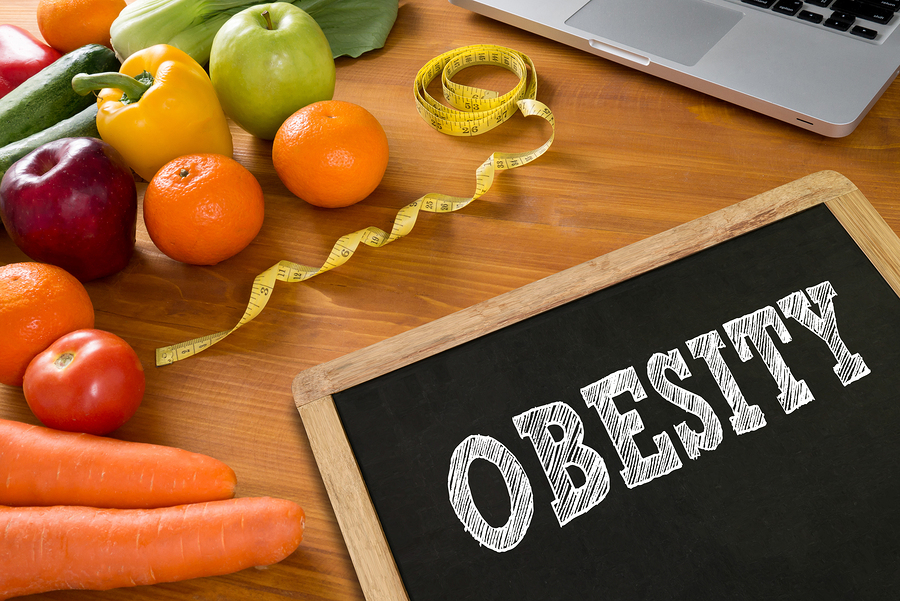Obesity Awareness Week
It's Obesity Awareness Week - a national campaign that aims to highlight the health risks associated with obesity.
In the UK, 1 in 4 adults are considered obese – if the current trend continues, by 2050 it’s expected this number could rise above 50%.
What is obesity?
There’s some confusion around what obesity actually means, because obesity doesn’t always look the way we expect – the word sometimes calls to mind sensationalist television programmes about people who are too heavy to walk, but the reality is a lot different.
Many people who would be classed as obese won’t think of themselves as such – which can be a major barrier when it comes to good health.
The most widely used method for defining obesity is through body mass index (or BMI). If you have a BMI of 30 or above you’re obese, while a BMI of 40 or above means you’re severely obese. If you’re not sure of your BMI, the NHS has a useful calculator to help you quickly establish where you stand.
The risks of obesity
Unrealistic standards of beauty, body shaming and diet fads can make talking about weight and tackling the problem feel fraught and deeply personal.
Obesity isn’t simply about how you look physically – what’s more important is the health risks and potentially serious conditions that are associated with it.
Obesity can effect every aspect of your life, from depression and low self esteem to cancer, stroke, diabetes, coronary heart disease, sleep apnoea, asthma, high blood pressure, and liver and kidney disease.
Obesity and being overweight contribute to 1 in 13 deaths in Europe. Obesity reduces life expectancy by an average of 3 to 10 years.
Tackling obesity head-on
The reasons for obesity are complex and individual. Our modern lifestyles don’t make it any easier; we’re flooded with cheap, high-calorie food with confused messaging, and increasingly spend much of our time stationary – driving, watching TV and sitting behind a computer screen.
If you’re surprised to find you’re considered obese or notice members of your family struggling, there’s no reason to feel ashamed or hopeless.
There are plenty of lifestyle changes you can make to help you return to a healthier weight range that have nothing to do with extreme diets and exercise regimes.
It’s better to make gradual changes and set realistic goals for yourself. Even losing a small amount of weight and maintaining this can significantly reduce your risk of developing obesity-related health complications.
Small changes, big impact
Here’s just a few suggestions of small changes that can have a big impact.
- Speak to your GP – If you’re not sure where to start, speak to your GP. They will be able to provide you with helpful encouragement and answer any questions or concerns you might have.
- Cooking more healthily – Cooking for yourself rather than relying on ready meals and takeaways is one of the simplest ways to eat more healthily. By preparing your own food at home you control exactly what ingredients go in and can cut out unnecessary fat and sugar that goes along with processed foods. Finding new ways to feed yourself and your family can be a joy; using cookbooks to try new dishes can help reinvigorate your eating habits and help you focus on adding healthful foods to your diet rather than denying yourself or taking something away.
- Understanding labelling – Getting to grips with food labelling can help you better understand what food you’re buying. Many foods we consider healthy are actually packed full of hidden sugars – fruit juices, breakfast cereals and flavoured yogurts are just three examples of foods we rely on for nutrition that may actually cause more harm than good. The NHS has released a new app as part of its Change4Life programme that can help families check food labels quickly and better understand the nutritional content of what they’re eating.
- Being physically active – Physical activity doesn’t just help you burn calories and lose weight. It can also help improve your moods, release stress, improve self esteem and help you stay motivated. Start small with something you can do regularly and then challenge yourself to build on it. The NHS Couchto5K programme is designed to help non-runners complete their first 5K run, for example.
- Join a community – A weight loss community can help connect you with people who are in a similar position to you. They can be a great source of information, inspiration, recipes and motivation. There are paid communities like Weight Watchers where you can attend physical meetings as well as participate online, but don’t feel you need to spend money. The NHS has a brilliant free weight loss guide, and communities like My Fitness Pal and the Lifesum app help simplify everything from counting calories to fitness plans.
Are you worried about obesity? Share your experiences in the comments below.
Disclaimer
All content on Silversufers.com is provided for general information only, and should not be treated at all as a substitute for the medical advice of your own doctor or any other health care professional. Silversurfers.com will not be responsible or liable for any diagnosis made by a user based on the content on www.silversurfers.com and we are also not liable for the content of any external websites or links from or to Silversurfers to any other websites. Please always consult your own doctor if you’re in any way concerned about any aspect of your health.
Rachel - Silversurfers Assistant Editor
Latest posts by Rachel - Silversurfers Assistant Editor (see all)
- Chocolate dipped strawberries for Easter - April 13, 2025
- Easter activities for grandchildren - March 31, 2025
- Songs about Mum for Mothering Sunday - March 26, 2025
- The best of Diana Ross - March 25, 2025
- Elton John’s Greatest Hits Playlist - March 24, 2025




















